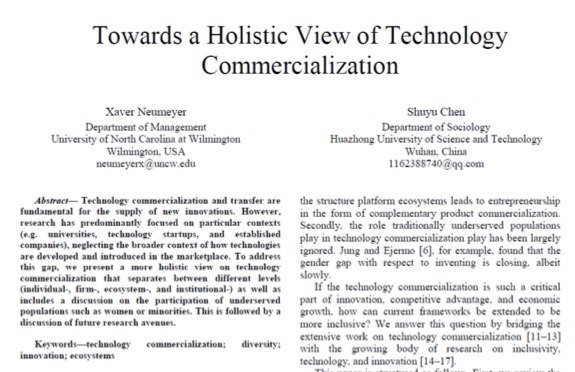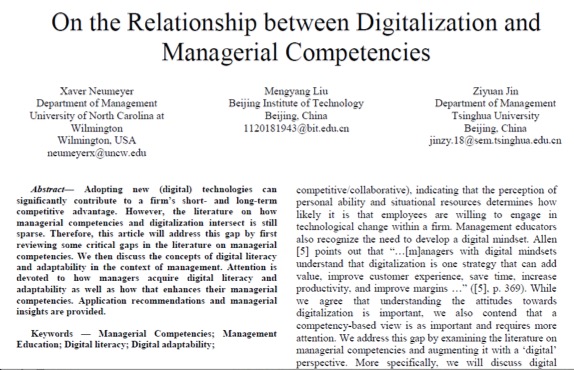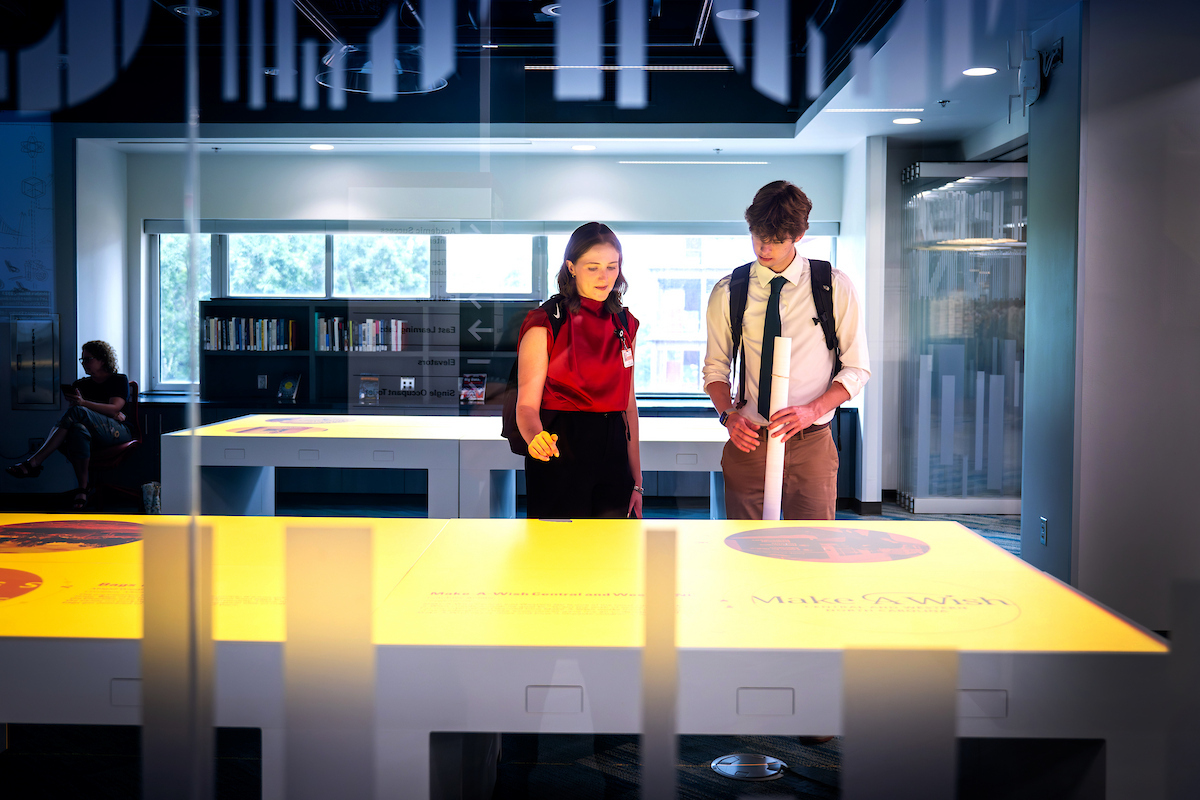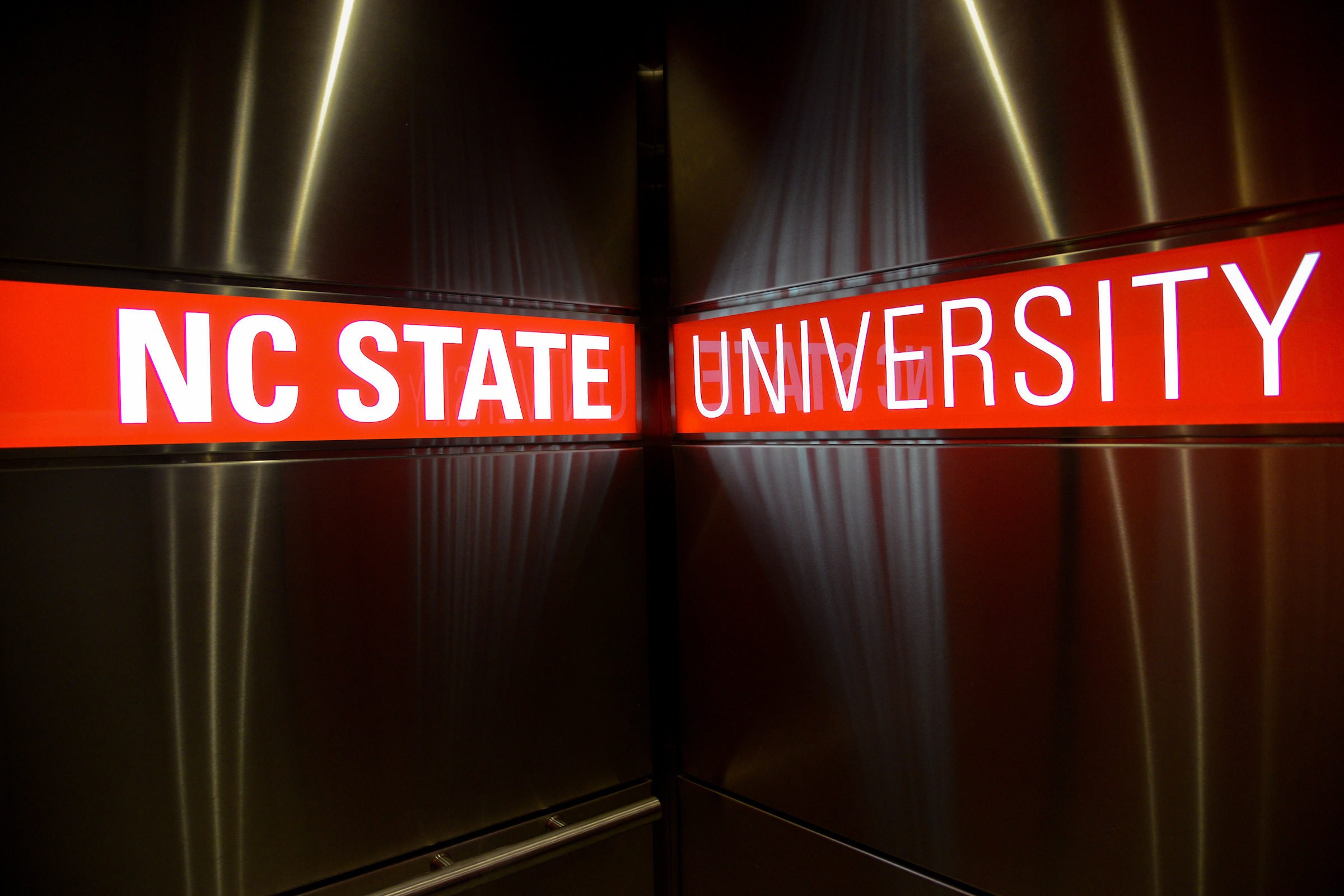GEARS Student Research To Be Presented At Academic Conference
Xaver Neumeyer is an assistant professor of entrepreneurship at the University of North Carolina -Wilmington. He is also a faculty mentor in GTI’s GEARS program. The GEARS program is a unique academic, research and cultural exchange program that enables academically gifted domestic and international students to participate in academic research at universities across North Carolina. Neumeyer mentored Shuyu Chen, Mengyang Liu and Ziyuan Jin, among others, as part of the program this past January. As a result of their collaborative research, he also co-authored two research papers with the students that will be presented at the 2021 IEEE Technology & Engineering Management Conference in Europe.
Participants in the GEARS program are currently working virtually with faculty mentors in universities across North Carolina because of the global pandemic. Neumeyer appreciated being involved as a faculty mentor and hopes to see the program expand in the future.
Q&A with a GEARS Faculty Mentor
How did you learn about the GEARS program and why did you decide to participate as a faculty mentor?
I first heard about GEARS through our international office. I have always been interested in working with international students, learn about their interests and gain from their insights. Saudi Arabia and China were of particular interest to me as they have seen significant economic changes in the last years, fitting well with my research on entrepreneurship and technology.

What was it like mentoring the GEARS students, especially in this virtual setting?
It was certainly a different experience than interacting face-to-face. However, I picked up a few virtual mentoring techniques. One of the big benefits of using Zoom is that you can share a screen and review materials together.
What were some of the highlights of working with the students?
Certainly their enthusiasm. It was very exciting to see them learn new topics and develop an intuition for where the research gaps are.
What were some of the challenges?
My first time in the program was particularly challenging. I had to get used to the relatively short duration of the program while providing students a meaningful research experience. At the same time, that constraint really helped me focus on the essential parts of the research process and improve the selection of projects.
How did the GEARS students contribute to the conference papers?
The papers we got accepted at TEMSCON 2021 were conceptual and theoretical, so students spend a significant amount of time in searching databases and identifying the relevant articles for review. They then had the opportunity to draft sections of the complete paper which I subsequently reviewed and returned to them with feedback.
- Categories:




